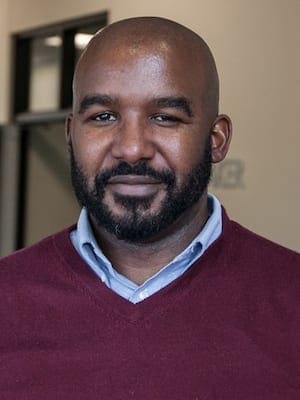The city of Ferguson, Missouri, has been transformed over the past two weeks from an unknown sleepy town located in the northern portion of St. Louis into the symbolic embodiment of multiple racial, political and social struggles.
The incident, and the subsequent fallout, has served as one more point of engagement for discussing what is wrong with America.
On the hour, local, national and international media pundits continue to discuss the practice of racial profiling of minority cultures by predominantly white police departments.
Pundits have puzzled over the lack of interest by African-Americans in working with law enforcement.
Experts have debated the pros and cons of the militarization of local police departments.
Civil rights leaders have stressed the need for understanding the lack of trust for law enforcement commonly held within African-American communities.
It is clear that there are several things that need to be fixed in America—and Ferguson.
The fatal shooting of an unarmed African-American teen by a white officer has placed Ferguson at the center, physically and literally, of a whirlwind of controversy.
In the aftermath of the fatal event, local, national and international media outlets began to flock to the community to provide much needed coverage of the story.
Civil rights leaders have made Ferguson “ground zero” for the fight for racial and economic equality. Celebrities are walking side by side with community members.
All of this is important, valid and probably necessary. But how has all of this affected the people that live in Ferguson?
Unfortunately, life for residents in Ferguson has slowed to somewhat of a grinding and frustrating halt.
The beginning of the school year for the Ferguson school district has been delayed in order to protect school children from potential violence that could occur during protests.
Residents are having a hard time accessing stores that have media and law enforcement vehicles in their parking lots.
Businesses that used to operate under peaceful and quiet circumstances are hoping that people simply remember that they are still open for business.
What can we, the neighbors of Ferguson, do to help the people who live there, who care deeply about what happened and who have an opinion about all of the accompanying issues, but at the current time, want, and need, to move forward with their everyday lives?
I have three simple suggestions that I believe can help us all.
First, don’t show up to Ferguson just to see what’s going on.
There is an overabundance of law enforcement, media outlets and onlookers. This is making life for community residents more hectic and frustrating than necessary.
There is a plethora of photos and videos of protesters and police officers available on the Internet if you want to see what all of this looks like.
Second, if you do travel to Ferguson, go with the intent to lend a helping hand.
And don’t show up empty-handed. Bring resources that are needed by community members.
You can find out what resources are needed by contacting or viewing the websites of churches, governmental agencies and nonprofit organizations that are located in and serve that community.
One concrete example is to bring toiletries for elderly people who were dependent on convenience stores that have been looted and destroyed.
If you choose not to travel to the area, contact those same organizations and find out how you can donate materials or funds to help with needs.
Third, seek to engage in the multiple ongoing conversations in ways that build community instead of destroying it.
Hate toward others that don’t see the circumstances the same way we do doesn’t serve anyone. It only serves to add fuel to a fire that rages well on its own.
This story of an African-American youth, a police officer and a city in crisis is far from over. There are multiple chapters that are left to be told.
But, if we can help this community and each other, instead of hurting, we can show what’s right about humankind.
 Terrell Carter is minister of administration at Third Baptist Church in St. Louis and director of the Foundations in Ministry program for Central Baptist Theological Seminary in St. Louis.
Terrell Carter is minister of administration at Third Baptist Church in St. Louis and director of the Foundations in Ministry program for Central Baptist Theological Seminary in St. Louis.
Editor’s note: Carter’s earlier article offering three responses to Ferguson’s unfolding tragedy is available here. A news story about how some Baptists in the St. Louis area have responded to the crisis is available here.
A pastor, author and educator living in St. Louis, Missouri, he is the author of several books, including The Gospel According to Broadway and Taking Apart Bootstrap Theology: Gospel of Generosity and Justice.

